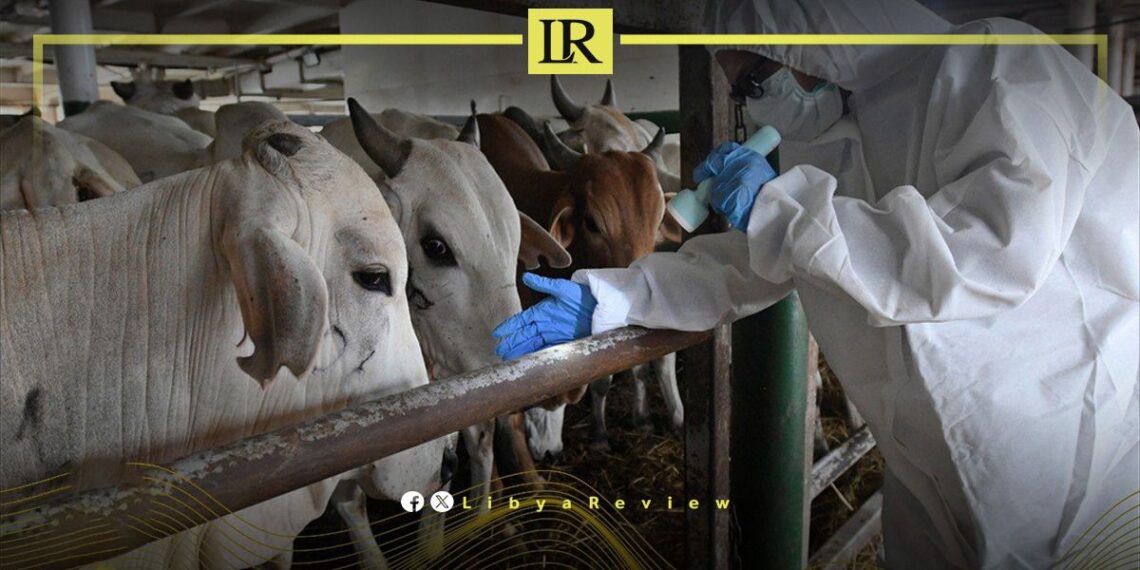In a troubling development from the Green Mountain area, Saleh Boumbaraka, Director of Animal Resources, announced the deaths of 177 cattle due to dermatitis nodularis, a severe skin disease.
The region has also recorded more than 1,000 cases of this disease in cattle. Additionally, the outbreak of foot-and-mouth disease has infected over 19,000 sheep and 500 cattle.
Boumbaraka revealed in a press statement that the foot-and-mouth disease has led to the deaths of 1,322 sheep and 47 cattle. The municipality of Al Bayda has received its allocation of vaccines against foot-and-mouth disease.
Vaccination teams, including designated committees and veterinarians, are set to begin immunization efforts within the municipal boundaries, focusing on specific areas as assigned.
The director further emphasized the importance of registration in the livestock census system at the Office of Animal Resources. This step ensures that all livestock owners within the municipality are included in the vaccination program.
He also urged officials to provide necessary support by supplying feed and vaccines and by facilitating livestock imports to help alleviate the burden on citizens caused by the significant rise in local livestock prices.
This situation poses a critical challenge to livestock health management in Libya, impacting not only the local farming community but also the broader economic stability in the region. Authorities are calling for coordinated efforts to control the spread of these diseases and to support the affected livestock owners.
Libya has been in chaos since a NATO-backed uprising toppled longtime leader Muammar Gaddafi in 2011. The county has for years been split between rival administrations.
Libya’s economy, heavily reliant on oil, has suffered due to the ongoing conflict. The instability has led to fluctuations in oil production and prices, impacting the global oil market and Libya’s economy.
The conflict has led to a significant humanitarian crisis in Libya, with thousands of people killed, and many more displaced. Migrants and refugees using Libya as a transit point to Europe have also faced dire conditions.


